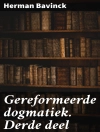In ’The Plan of Salvation’ by John Morgan, the reader is taken on a profound journey through the complexities of religious beliefs and the concept of redemption. Morgan’s writing style is characterized by its eloquence and deep introspection, making the book a captivating read for those interested in theological literature. The narrative delves into the intricate details of salvation and the moral dilemmas that individuals face in their pursuit of spiritual fulfillment. The allegorical nature of the text adds layers of depth, inviting readers to contemplate the inherent complexities of faith and divine grace. ’The Plan of Salvation’ is a thought-provoking exploration of the eternal struggle between sin and salvation, appealing to scholars and avid readers of religious philosophy. John Morgan, a theologian with a background in comparative religion, draws upon his expertise to craft a narrative that challenges conventional perceptions of spirituality and moral righteousness. His profound insights and scholarly approach to theological discourse lend credence to the book’s message, establishing Morgan as a notable voice in the realm of religious literature. For readers seeking intellectual stimulation and spiritual contemplation, ’The Plan of Salvation’ offers a compelling exploration of the eternal quest for redemption and divine grace.
Om författaren
John Morgan, an erudite theologian known for his compelling discourse on eschatology, ventured into the realms of religious literature with his seminal work, ’The Plan of Salvation.’ His book delves into the intricacies of soteriology, presenting a comprehensive guide to understanding the Christian concept of salvation and the divine design behind it. Morgan postulates the coherence between divine grace and human agency in the pursuit of redemption, drawing upon a wealth of biblical exegesis and patristic scholarship. His lucid style amalgamates rigorous academic research with profound spiritual insights, making his work accessible to both the scholar and layperson. While detailing the historical background of salvation doctrines, Morgan also addresses contemporary theological debates, positioning himself as a voice of mediation within polarized discourse. His literary contributions extend beyond mere academic exercise, inviting readers into a deeper contemplation of faith, hope, and the transformative power of divine love in the Christian tradition. Though not widely known outside of theological circles, Morgan’s text remains a touchstone for students and educators in the fields of religious studies and pastoral ministry, reflecting a career dedicated to exploring the depths of spiritual understanding and the human condition.












